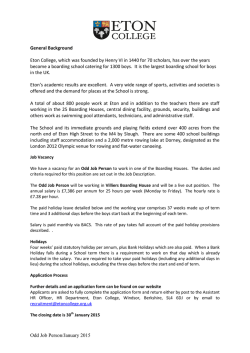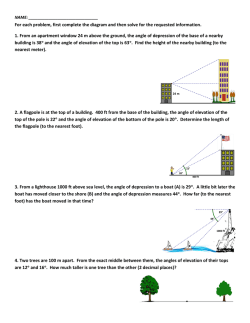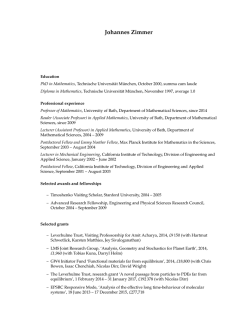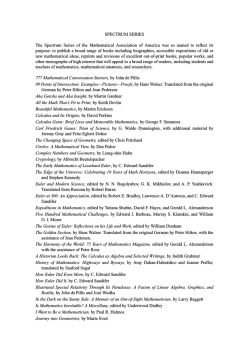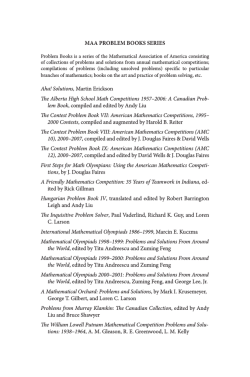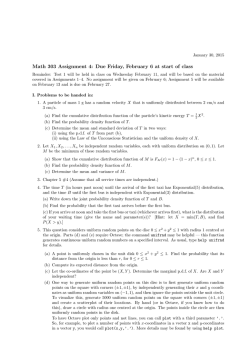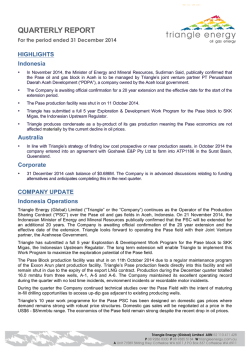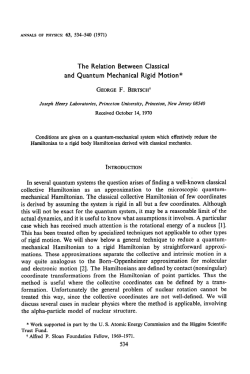
BMO Round 2 paper - British Mathematical Olympiad
United Kingdom Mathematics Trust British Mathematical Olympiad Round 2 : Thursday, 29 January 2015 Time allowed Three and a half hours. Each question is worth 10 marks. Instructions • Full written solutions – not just answers – are required, with complete proofs of any assertions you may make. Marks awarded will depend on the clarity of your mathematical presentation. Work in rough first, and then draft your final version carefully before writing up your best attempt. Rough work should be handed in, but should be clearly marked. • One or two complete solutions will gain far more credit than partial attempts at all four problems. • The use of rulers and compasses is allowed, but calculators and protractors are forbidden. • Staple all the pages neatly together in the top left hand corner, with questions 1, 2, 3, 4 in order, and the cover sheet at the front. • To accommodate candidates sitting in other time zones, please do not discuss any aspect of the paper on the internet until 8am GMT on Friday 30 January. In early March, twenty students eligible to represent the UK at the International Mathematical Olympiad will be invited to attend the training session to be held at Trinity College, Cambridge (26-30 March 2015). At the training session, students sit a pair of IMO-style papers and eight students will be selected for further training and selection examinations. The UK Team of six for this summer’s IMO (to be held in Chiang Mai, Thailand, 8–16 July 2015) will then be chosen. Do not turn over until told to do so. United Kingdom Mathematics Trust 2014/15 British Mathematical Olympiad Round 2 1. The first term x1 of a sequence is 2014. Each subsequent term of the sequence is defined in terms of the previous term. The iterative formula is √ ( 2 + 1)xn − 1 xn+1 = √ . ( 2 + 1) + xn Find the 2015th term x2015 . 2. In Oddesdon Primary School there are an odd number of classes. Each class contains an odd number of pupils. One pupil from each class will be chosen to form the school council. Prove that the following two statements are logically equivalent. a) There are more ways to form a school council which includes an odd number of boys than ways to form a school council which includes an odd number of girls. b) There are an odd number of classes which contain more boys than girls. 3. Two circles touch one another internally at A. A variable chord P Q of the outer circle touches the inner circle. Prove that the locus of the incentre of triangle AQP is another circle touching the given circles at A. The incentre of a triangle is the centre of the unique circle which is inside the triangle and touches all three sides. A locus is the collection of all points which satisfy a given condition. 4. Given two points P and Q with integer coordinates, we say that P sees Q if the line segment P Q contains no other points with integer coordinates. An n-loop is a sequence of n points P1 , P2 , . . . , Pn , each with integer coordinates, such that the following conditions hold: a) Pi sees Pi+1 for 1 ≤ i ≤ n − 1, and Pn sees P1 ; b) No Pi sees any Pj apart from those mentioned in (a); c) No three of the points lie on the same straight line. Does there exist a 100-loop?
© Copyright 2026
